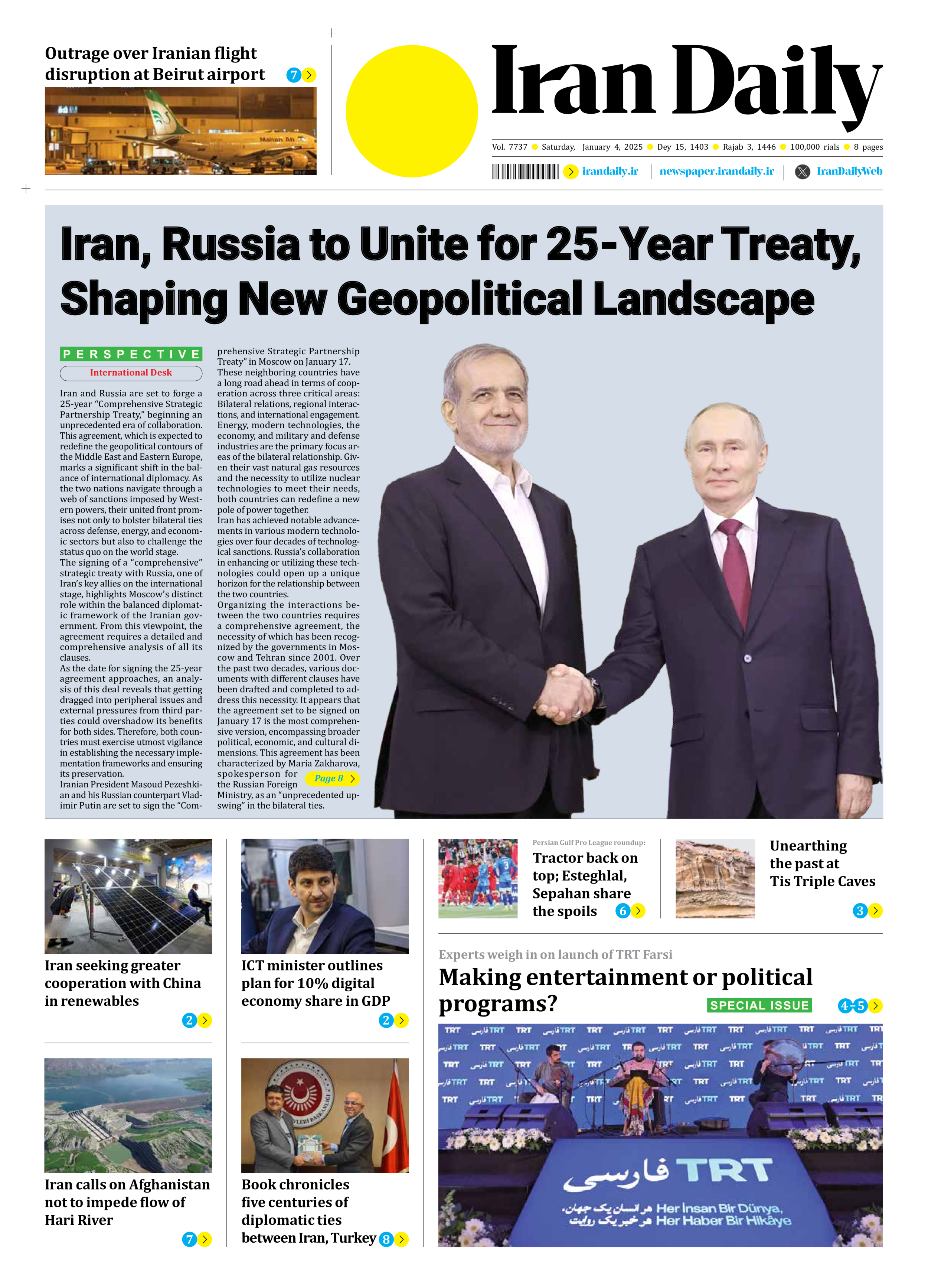
Iran, Russia to Unite for 25-Year Treaty, Shaping New Geopolitical Landscape
Iran and Russia are set to forge a 25-year “Comprehensive Strategic Partnership Treaty,” beginning an unprecedented era of collaboration. This agreement, which is expected to redefine the geopolitical contours of the Middle East and Eastern Europe, marks a significant shift in the balance of international diplomacy. As the two nations navigate through a web of sanctions imposed by Western powers, their united front promises not only to bolster bilateral ties across defense, energy, and economic sectors but also to challenge the status quo on the world stage.
The signing of a “comprehensive” strategic treaty with Russia, one of Iran’s key allies on the international stage, highlights Moscow’s distinct role within the balanced diplomatic framework of the Iranian government. From this viewpoint, the agreement requires a detailed and comprehensive analysis of all its clauses.
As the date for signing the 25-year agreement approaches, an analysis of this deal reveals that getting dragged into peripheral issues and external pressures from third parties could overshadow its benefits for both sides. Therefore, both countries must exercise utmost vigilance in establishing the necessary implementation frameworks and ensuring its preservation.
Iranian President Masoud Pezeshkian and his Russian counterpart Vladimir Putin are set to sign the “Comprehensive Strategic Partnership Treaty” in Moscow on January 17.
These neighboring countries have a long road ahead in terms of cooperation across three critical areas: Bilateral relations, regional interactions, and international engagement. Energy, modern technologies, the economy, and military and defense industries are the primary focus areas of the bilateral relationship. Given their vast natural gas resources and the necessity to utilize nuclear technologies to meet their needs, both countries can redefine a new pole of power together.
Iran has achieved notable advancements in various modern technologies over four decades of technological sanctions. Russia’s collaboration in enhancing or utilizing these technologies could open up a unique horizon for the relationship between the two countries.
Organizing the interactions between the two countries requires a comprehensive agreement, the necessity of which has been recognized by the governments in Moscow and Tehran since 2001. Over the past two decades, various documents with different clauses have been drafted and completed to address this necessity. It appears that the agreement set to be signed on January 17 is the most comprehensive version, encompassing broader political, economic, and cultural dimensions. This agreement has been characterized by Maria Zakharova, spokesperson for the Russian Foreign Ministry, as an “unprecedented upswing” in the bilateral ties.
Page 8







